Resources
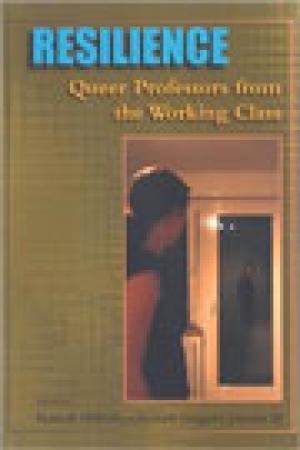
First collection of essays by queer scholars with working- class backgrounds. (From the Publisher)
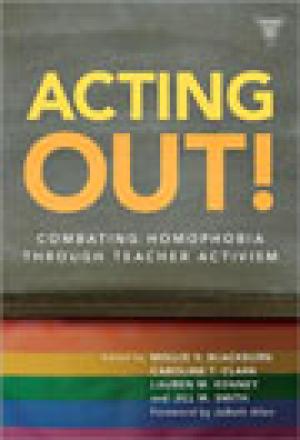
In this volume, teachers from urban, suburban, and rural districts join together in a teacher inquiry group to challenge homophobia and heterosexism in schools and classrooms. To create safe learning environments for all students they address key topics. (From the Publisher)
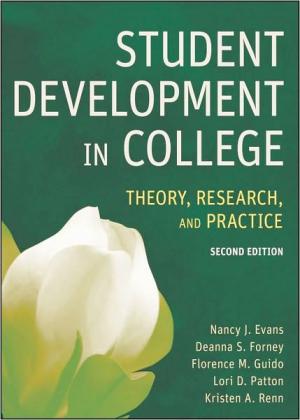
The second edition of Student Development in College offers higher education professionals a clear understanding of the developmental challenges facing today's college students. Thoroughly revised and updated, this edition includes new integrative theories of student development, expanded coverage of social identity theories, a targeted focus on higher education-related research, a current review of student development research and application, and reconceptualization of typology theories as a way to understand individual differences. Praise for the Second Edition of Student Development in College Student Development in College is a rich, comprehensive exploration of the major theoretical perspectives that inform development. The authors' attention to nuances and complexities results in a substantive history of theory development and a careful story about how various perspectives evolved yielding contemporary theorizing. The book is a masterful blend of theoretical lenses and their use in designing developmentally appropriate practice for diverse populations of contemporary college students. It is an excellent resource for all educators who work on college campuses. (From the Publisher)
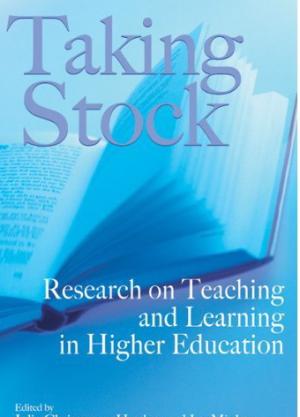
Arguing for an enhanced commitment to evidence-based practice, Taking Stock offers concrete suggestions for changes on a systemic level in support of student learning and calls on all those working in higher education - faculty, educational developers, administrators, and government officials - to work together to bring about these changes. (From the Publisher)
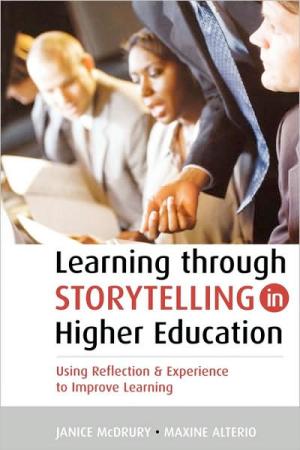
Learning through Storytelling in Higher Education: Using Reflection & Experience to Improve Learning
"Learning Through Storytelling in Higher Education" explores ways of using storytelling as a teaching and learning tool. When storytelling is formalized in meaningful ways, it can capture everyday examples of practice and turn them into an opportunity to learn - encouraging both reflection, a deeper understanding of a topic and stimulating critical thinking skills. The technique can accommodate diverse cultural, emotional and experiential incidents, and may be used in many different contexts eg formal/informal; one-on-one/group setting. The authors outline the different models of storytelling and explain how to make use of this technique and encourage a 'storytelling culture' within the workplace or in tutorial sessions. Academic yet accessible, this book provides a new perspective on learning techniques and will be a great asset to any educator looking to improve reflective practice. (From the Publisher)
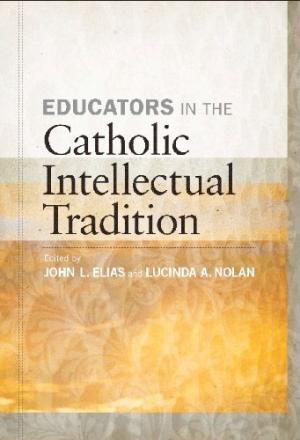
This book contains a collection of studies of prominent educators who have made significant contributions to handing on the Catholic intellectual tradition in the United States. These men and women have enriched this tradition by careful attention to educational theories and methods that find their origin in the Jewish and Christian past. Ancient Israel was assiduous in handing on the Torah or Law, the prophets dramatically called people back to the practices of the covenant, and the sages gave practical advice for everyday living. The Acts of the Apostles and the Letters of Paul chronicle the careful attention to safeguarding and transmitting the teachings in the early apostolic Christian communities. Contributors to this tradition in the past three centuries have been mainly European scholars. However, in the past two centuries educators in the United States have made notable contributions to the task of handing on the Catholic intellectual tradition.
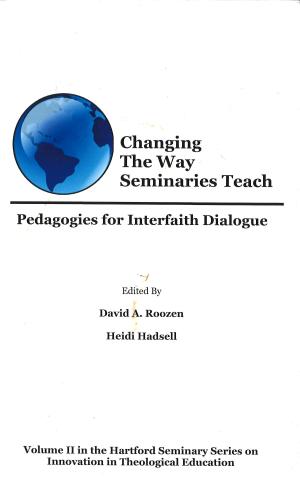
This book is about teaching, interfaith dialogue and theological education. The core of the book: six critical case studies of seminary taught, degree courses in interfaith dialogue. The cases give expression to a broad range of dialogical pedagogies and course formats, and they include the courses’ syllabi and bibliographies. By critical case we mean one that describes not only the context, content, methods and related goals and rationale of the course, but also presents an evaluation of the course and discussion of the implications of the evaluation for teaching interfaith dialogue in theological institutions. (From the Publisher)
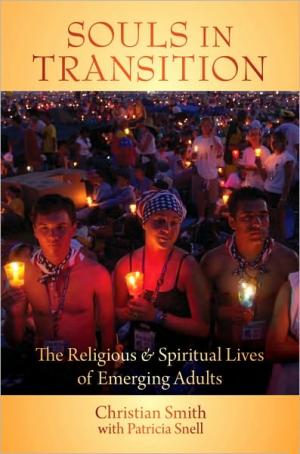
How important is religion for young people in America today? What are the major influences on their developing spiritual lives? How do their religious beliefs and practices change as young people enter into adulthood? Christian Smith's Souls in Transition explores these questions and many others as it tells the definitive story of the religious and spiritual lives of emerging adults, ages 18 to 24, in the U.S. today. This is the much-anticipated follow-up study to the landmark book, Soul Searching: The Religious and Spiritual Lives of American Teenagers. Based on candid interviews with thousands of young people tracked over a five-year period, Souls in Transition reveals how the religious practices of the teenagers portrayed in Soul Searching have been strengthened, challenged, and often changed as they have moved into adulthood. The book vividly describes as well the broader cultural world of today's emerging adults, how that culture shapes their religious outlooks, and what the consequences are for religious faith and practice in America more generally. Some of Smith's findings are surprising. Parents turn out to be the single most important influence on the religious outcomes in the lives of young adults. On the other hand, teenage participation in evangelization missions and youth groups does not predict a high level of religiosity just a few years later. Moreover, the common wisdom that religiosity declines sharply during the young adult years is shown to be greatly exaggerated. Painstakingly researched and filled with remarkable findings, Souls in Transition will be essential reading for youth ministers, pastors, parents, teachers and students at church-relatedschools, and anyone who wishes to know how religious practice is affected by the transition into adulthood in America today. (From the Publisher)
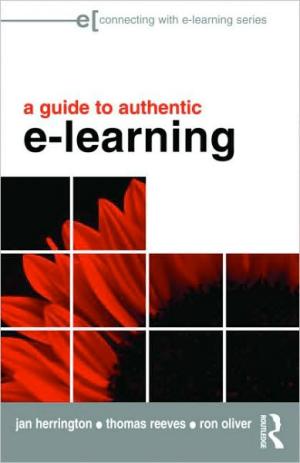
Part of the groundbreaking Connecting with e-Learning series, A Guide to Authentic e-Learning provides effective, working examples to engage learners with authentic tasks in online settings. As technology continues to open up possibilities for innovative and effective teaching and learning opportunities, students and teachers are no longer content to accept familiar classroom or lecture-based pedagogies that rely on information delivery and little else. Situated and constructivist theories advocate that learning is best achieved in circumstances resembling the real-life application of knowledge. While there are multiple learning design models that share similar foundations, authentic e-learning tasks go beyond process to become complex, sustained activities that draw on realistic situations to produce realistic outcomes. A Guide to Authentic e-Learning: • develops the conceptual framework for authentic learning tasks in online environments • provides practical guidance on design, implementation, and evaluation of authentic e-learning tasks • includes case studies and examples of outcomes of using authentic e-learning tasks Written for teaching professionals in Higher Education who teach online, A Guide to Authentic e-Learning offers concrete guidelines and examples for developing and implementing authentic e-learning tasks in ways that challenge students to maximize their learning. This essential book provides effective, working examples to engages learners with authentic tasks in online learning settings. (From the Publisher)
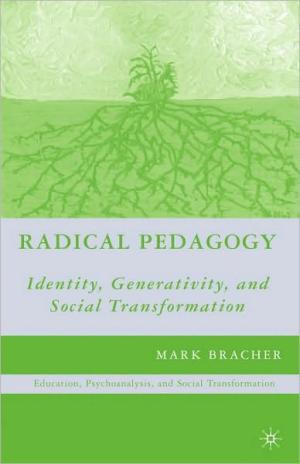
Radical Pedagogy argues that longstanding pedagogical aims and practices are ineffective in promoting learning and social change and proposes a new strategy for achieving these ends. Drawing on recent research in psychoanalysis, social psychology, and cognitive science, Bracher argues that the most effective way to solve social problems such as violence, prejudice, and substance abuse on a mass scale, as well as impediments to learning and personal well being, is through a pedagogy that addresses their common root cause: identity vulnerability.To this end, Bracher formulates psychoanalytically based practices to develop more resilient, secure, and prosocial identities for both teachers and students. (From the Publisher)